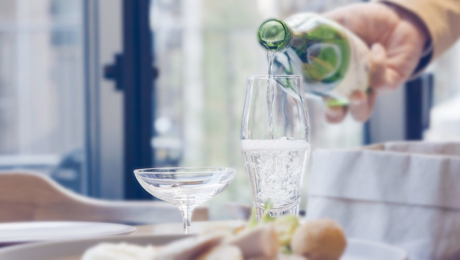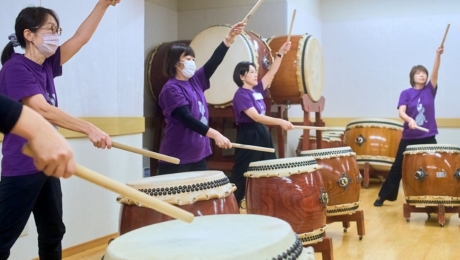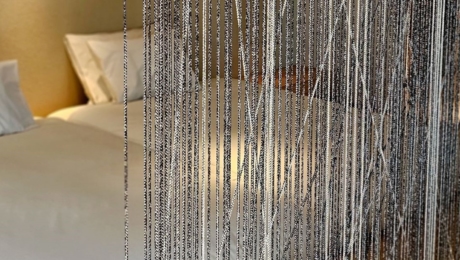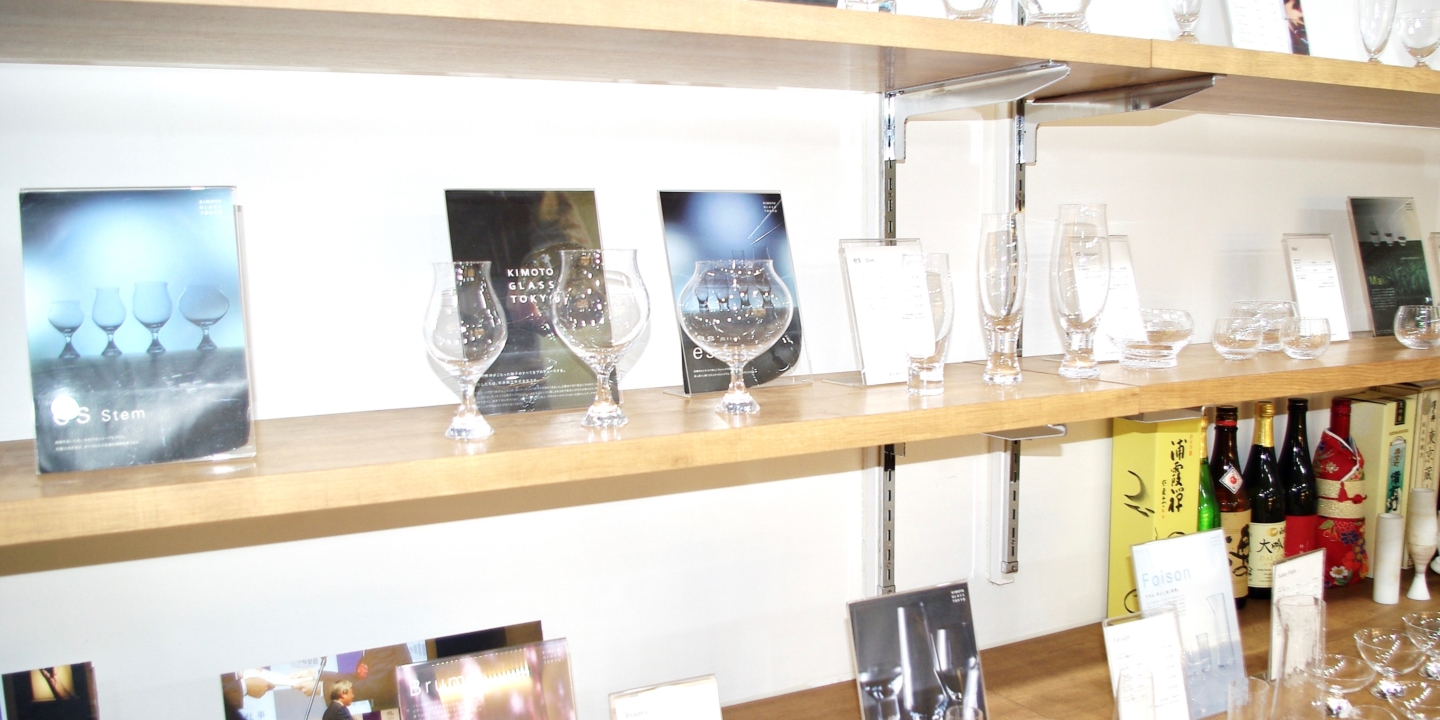
Going Beyond the Constraints of Industries to Share New Values
2020.03.23
LIFEKimoto Glass Tokyo’s “Sake Glass Selection” contains various types of glasses based on the idea of selecting particular types of sake and glasses that pair well with food and drinks. We spoke with Seiichi Kimoto, who is the third generation owner.
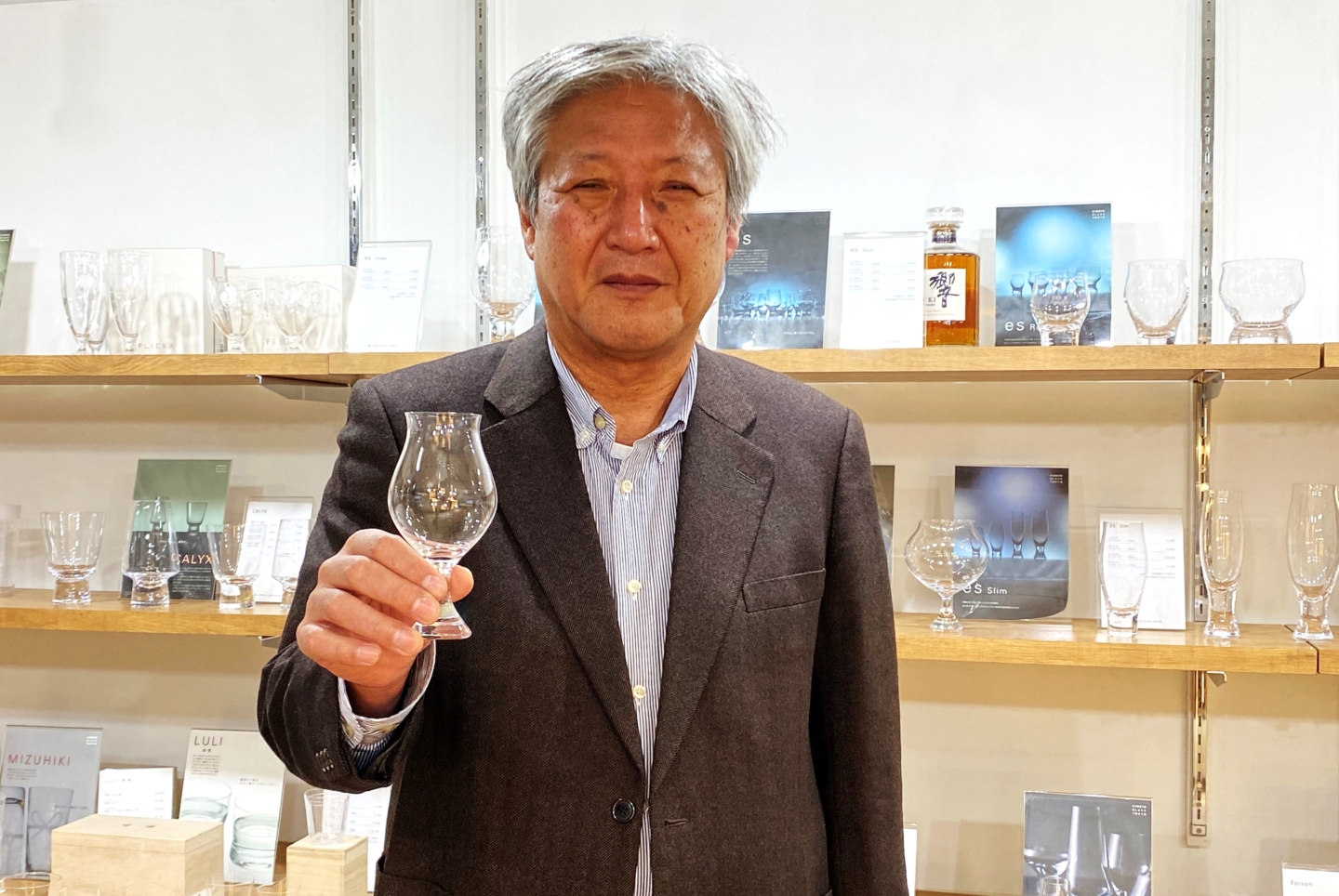
Given that different glasses are used for different types of wine and beer, why are only ochoko (small sake cups) or bland glasses used for sake? As he pondered this question, Mr. Kimoto constructed 3 hypotheses to change the world of sake.
First is to carefully select shapes and sizes of glasses to bring out the flavor and aroma of the sake. Second is to have an awareness of the combinations with food before, during, and after meals. Last is to target young women to help them reach the conclusion that “Sake and Japanese food are so delicious!” and “This is so fancy!”
Based on these hypotheses, he visited roughly 30 sake breweries across Japan, created 130 types of glasses, and evaluated the results. Mr. Kimoto states, “Various things can be experienced with the five senses, such as smelling the aroma and touching the glass and the sake with your lips. The artisans that we work with are able to create glasses that are only 1.0 – 1.1 mm thin in order to address the delicate differences in the senses. Since people can properly sense differences on the 0.1 mm level, they also notice the differences in how sake can be appreciated.”
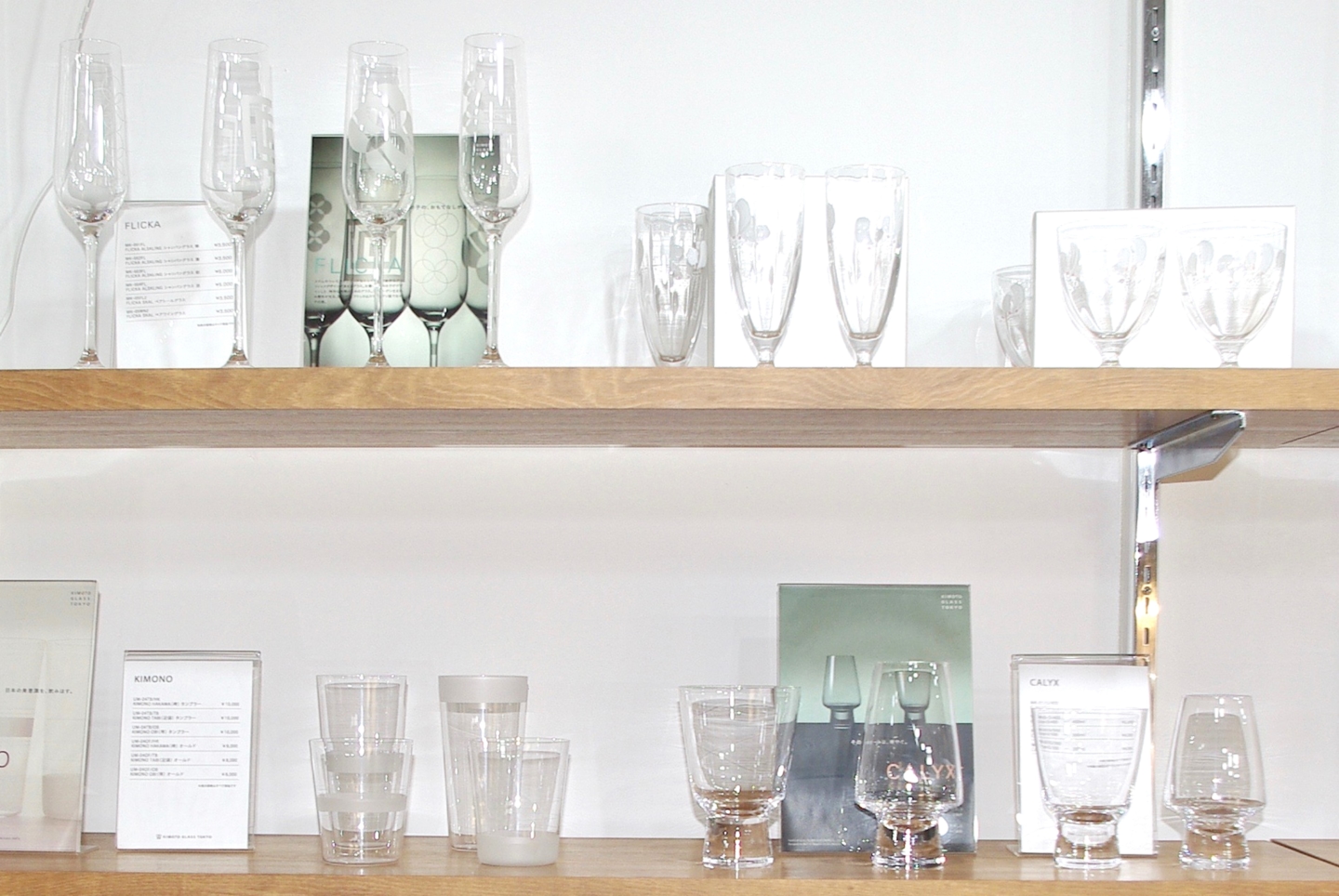
“Sake, restaurants, and tableware each belong to a different industry. They even have different government branches in charge of them, as sake belongs to the National Tax Administration Agency, food belongs to the Ministry of Agriculture, Forestry, and Fisheries, and tableware belongs to the Ministry of Economy, Trade, and Industry. However, this is irrelevant to the customers. I would like to create a cycle that is ‘good for everybody,’ in which sake breweries, restaurants, and customers are all happy because of the existence of a producer called Kimoto Glass Tokyo, while artisans are also protected.”
Mr. Kimoto states that it is important to form one team, as is the case in rugby, and develop the business with members who are able to “share values.” The challenges of Kimoto Glass Tokyo continue to go beyond various boundaries.


